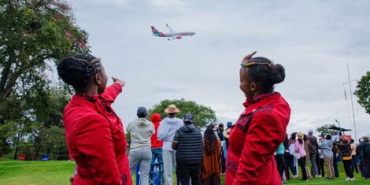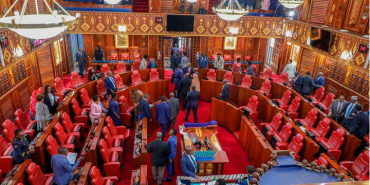Kibera Court Sentences Man to Death for Stealing Tecno Phone in Kawangware

A Kibera court has sentenced Isaac Khanga to death for two counts of robbery with violence following incidents that occurred on November 3, 2024, in the Madiaba area of Kawangware.
Principal Magistrate Christine Njagi delivered the verdict after a trial that concluded within six months, marking an unusually swift resolution in Kenya's judicial system. Khanga was convicted of robbing two individuals in separate incidents on the same night. He forcibly stole a Tecno mobile phone valued at Ksh24,000 and Ksh30,000 in cash from one victim. Shortly thereafter, he robbed another person of a mobile phone worth Ksh15,000 while issuing violent threats. These actions met the legal threshold for robbery with violence, leading the court to impose the maximum penalty.
The case underscores Kenya's firm stance on violent crimes, particularly those involving theft. Section 296(2) of the Penal Code stipulates a mandatory death sentence for robbery with violence, even if the offence does not result in loss of life. The law considers factors such as the presence of accomplices, the use of weapons, or direct threats to victims as sufficient grounds for imposing capital punishment.
During the trial, the Office of the Director of Public Prosecutions (ODPP), led by Counsel Ann Murage, presented evidence that convinced the court of Khanga's guilt. Prosecutors detailed how Khanga carried out the robberies with unidentified accomplices, although the case focused solely on his individual actions.
Magistrate Njagi emphasised that the death penalty remains legal in Kenya, reinforcing its continued use as a deterrent against violent offences. She notes that it has not been deemed unconstitutional by the courts. In accordance with legal procedures, one of the sentences imposed on Khanga will be held in abeyance, a common practice in cases involving multiple convictions for the same crime.
The swift handling of Khanga's case, from formal charges on November 15, 2024, to the conclusion of the trial within six months, is noteworthy. This speed contrasts with the often slow-moving nature of Kenya's court system and may indicate a renewed effort to expedite criminal trials, especially those involving violent crimes that pose a risk to public safety. While Kenya maintains the death penalty for the gravest offences, there has been ongoing debate about whether capital punishment truly serves as an effective deterrent against violent crime.














Add new comment